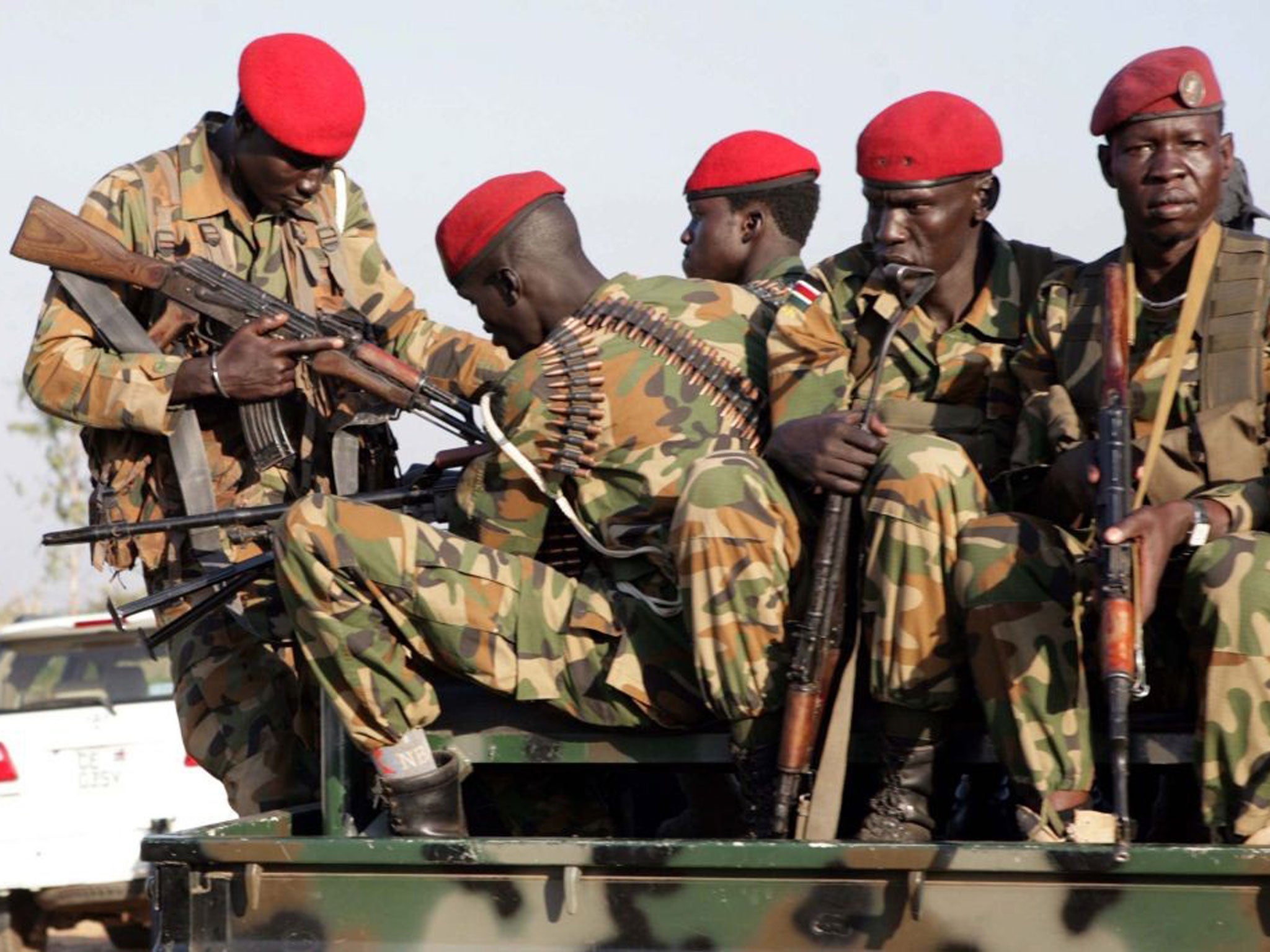South Sudan rebels take their battle to the oilfields
Campaign group warns that if rebel forces capture the country's assets, they could 'hold the government to ransom'

When South Sudan split from the north almost a decade ago after years of bloody violence, it took much of the region's oil with it.
Yesterday, as international negotiators descended on the world's youngest nation in a last-ditch bid to end the conflict that threatens to turn into ethnic civil war, those same oilfields were again at the heart of the fighting.
While some 35,000 South Sudanese people remain in temporary UN camps, and hundreds more have been killed, experts are now concerned that the rebel takeover of oilfields will inevitably draw Sudan and neighbouring countries into the conflict, as South Sudan's oil flows north through Sudan's pipelines, providing Khartoum with much needed income.
South Sudan has experienced a week of turmoil since President Salva Kiir, of the Dinka ethnic group, accused former vice-president Riek Machar of a coup attempt. Mr Machar, in turn, called on the army to overthrow the president, claiming that he wanted to "make himself a dictator" and was "somebody who mismanages" the state, which was formed two years ago.
Oil production reportedly accounts for more than 95 per cent of South Sudan's fledgling economy, and the campaign group Global Witness this week warned that if rebel forces captured the oilfields, they could "effectively hold the government to ransom".
By Friday, fighting had spread from the capital of Juba and rebels were said to have taken control of "at least some" of the oilfields in the northern Unity state, where clashes were reported in Bentiu. Oil workers were reportedly killed as refineries were raided.
On the same day the UN Security Council, which has since sent mediators into South Sudan, said the violence could drag neighbouring countries and the entire region in to the conflict. The sentiment was echoed by US President Barack Obama who, while dispatching troops to protect the US Embassy in Juba, said South Sudan stood "at the precipice".
But Philip Aguer, the spokesman for the Sudan People's Liberation Army, told AFP that Unity state remained under government control. "There was shooting in Bentiu overnight Friday to Saturday... We are awaiting exact details on the nature and extent of that," Mr Aguer said. "But I can be clear, Unity state is still under SPLA control." The Chinese state oil company, China National Petroleum Corp, has evacuated its workers from the region.
Yesterday, John Kerry, the US Secretary of State, called for leaders to "rein in armed groups" that were "under their control".
He added: "The violence must stop, the dialogue must intensify."
Mr Kerry's words, and those of Mr Obama, were soon given added weight when a US aircraft, destined to evacuate American citizens in South Sudan, came under fire yesterday, as it prepared to make an airlift near Bor, the capital of Jonglei state – scene of some of the worst violence.
Four American service members were wounded in the attack, the US military said, before the aircraft diverted to Uganda.
The attacks have increased speculation that the US, which played a key role in South Sudan's independence, would send more troops to the region. It currently has 45 military personnel deployed to protect its embassy and government employees.
Yesterday, army troops, backed by helicopter gunships, advance on Bor – occupied by forces loyal to Mr Machar, who belongs to the Nuer people – in an attempt to retake the city. The UN announced that its Jonglei peacekeeping base was attacked on Friday, where at least 11 people from the ethnic Dinka group were killed by "thousands of armed youths". Three Indian UN peacekeepers also died in the attack.
The Associated Press reported that a UN helicopter trying to evacuate peacekeepers and civilians was fired on and sustained significant damage on Friday. Rob McKee of Warrior Security, a private company that provides security to UN bases, said the helicopter was hit by small-arms fire and made an emergency landing while trying to evacuate personnel from a base in Yuai in Jonglei state. The helicopter was abandoned and no injuries were reported.
With 35,000 civilians now sheltering in UN bases, there is a growing humanitarian crisis in the country. African mediators, including African ministers and an African Union official, are also in South Sudan. They met President Kiir on Friday for what were described as "productive" talks.
Several foreign countries, including Britain and China, are trying to evacuate civilians from the conflict zone. Two flights have been chartered by the Foreign Office, with the second landing in Uganda on Friday night with 93 passengers.
William Hague, the Foreign Secretary, warned Britons to leave South Sudan as "soon as possible".
He added: "I am concerned about continuing violence in South Sudan. All leaders should exercise restraint.
"The safety and security of civilians is paramount."
Video: Americans evacuated amid heavy fighting in South Sudan
Subscribe to Independent Premium to bookmark this article
Want to bookmark your favourite articles and stories to read or reference later? Start your Independent Premium subscription today.

Join our commenting forum
Join thought-provoking conversations, follow other Independent readers and see their replies